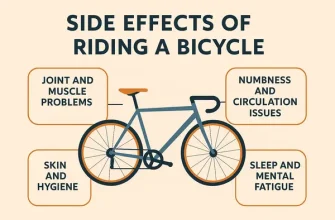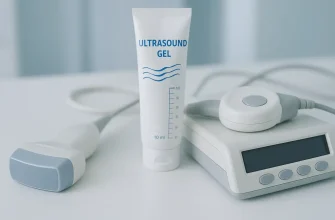That jolt of stabbing pain in the back of your head mid-squat or while sprinting isn’t just annoying—it can be a red flag. Sharp pain in the occipital region during exercise could stem from several causes, ranging from harmless exertion headaches to more serious neurological conditions.
Top Triggering Exercises for Occipital Headaches
This chart identifies the exercises most associated with triggering occipital headaches. Weightlifting tops the list, followed by aerobic activities like running and cycling.
Common Causes of Sharp Pain in the Back of the Head
1. Exertional Headaches
- Description: Also known as primary exercise headaches, they are triggered by physical activity.
- Feel: Sudden, sharp pain, often pulsating.
- Duration: A few minutes to 48 hours.
- Why it Happens: Exercise increases blood pressure and blood flow to the brain.
- Triggers: Weightlifting, running, cycling.
- Frequency: More common in hot weather or high altitudes.
2. Occipital Neuralgia
- Description: Irritation or injury to the occipital nerves.
- Feel: Piercing or electric-shock pain in the upper neck and head.
- Causes: Neck tension, poor posture, trauma, or cervical spine issues.
- Chronicity: Can be intermittent or constant.
3. Cervicogenic Headaches
- Description: Headaches originating from cervical spine problems.
- Pain Origin: Begins in the neck and radiates to the back of the head.
- Triggers: Neck movement, specific postures during workouts.
4. Dehydration or Electrolyte Imbalance
- Symptoms: Sharp head pain, dizziness, muscle cramps.
- Link to Exercise: Excessive sweating without replenishment.
5. Hypertension Spikes
- Danger: Exercise-induced blood pressure spikes can lead to headaches.
- Check It: Always monitor BP before and after workouts if you’re prone.
Common Causes of Exercise-Induced Headaches
This chart highlights the most common causes of exercise-induced headaches. Dehydration and poor posture lead the list, while less frequent factors include overexertion and low blood sugar.
When Should You Be Concerned?
Pain lasts longer than 24–48 hours
If head pain doesn’t resolve after a couple of days—even with rest, hydration, and over-the-counter meds—it might be a sign of an underlying neurological or vascular issue. Persistent headaches may indicate chronic exertional headaches, cervical instability, or even early signs of an aneurysm.
Watch for:
- Fatigue that persists.
- Neck stiffness.
- Trouble concentrating.
Accompanied by vision changes, nausea, or weakness
When pain in the back of the head is paired with blurry vision, double vision, nausea, or weakness in limbs, it raises red flags for intracranial pressure, vascular abnormalities, or even brainstem involvement.
Watch for:
- Nausea without food triggers.
- Difficulty keeping balance.
- Seeing flashes or halos.

Occurs frequently, even with light activity
If the pain returns during low-intensity workouts like walking or yoga, this suggests an issue with nerve sensitivity or underlying cervical dysfunction rather than mere overexertion.
Watch for:
- Pain starting early in the workout.
- Gradually worsening symptoms.
- Triggered by basic neck movements.
Associated with a recent head or neck injury
Any history of trauma—even mild—can cause damage to cervical vertebrae or nerves that manifest later as exercise-induced head pain.
Watch for:
- A “clicking” feeling in the neck.
- Reduced neck range of motion.
- Sharp pain triggered by posture changes.
If any of these situations match your symptoms, it’s not worth playing the guessing game. Book that appointment with your neurologist or sports physician.
Diagnostic Methods for Sharp Head Pain During Exercise
Neurological Exam
This in-office evaluation tests reflexes, muscle strength, coordination, and sensory response. The neurologist might ask the patient to walk, follow light with their eyes, or touch their finger to their nose.
- Patient Experience: Non-invasive, no discomfort.
- Time Required: 15–30 minutes.
- Results Time: Immediate.
- Accuracy: 7/10 — useful for spotting nerve-related issues.
- Average Cost: $150–$300.
MRI of the Brain & Neck
Magnetic Resonance Imaging creates detailed images of the brain, cervical spine, and surrounding soft tissues. It’s ideal for detecting tumors, nerve compression, inflammation, or vascular anomalies.
- Patient Experience: Requires lying still inside a narrow tube for 30–60 minutes. Some feel claustrophobic.
- Time Required: 45–90 minutes.
- Results Time: Typically 24–72 hours.
- Accuracy: 9/10 — gold standard for soft tissue and vascular imaging.
- Average Cost: $800–$2,500.
CT Scan
A Computed Tomography scan uses X-rays to capture cross-sectional images of the brain. Often used in emergency settings to rule out bleeding or trauma.
- Patient Experience: Quick and painless, the machine rotates around the head.
- Time Required: 5–15 minutes.
- Results Time: 1–24 hours depending on urgency.
- Accuracy: 8/10 — highly effective for structural and bleeding issues.
- Average Cost: $500–$1,500.
Cervical X-ray
This basic imaging looks at bone alignment in the neck and detects signs of arthritis or cervical spine instability.
- Patient Experience: Painless, with minimal radiation.
- Time Required: 10 minutes.
- Results Time: Same day or next.
- Accuracy: 6/10 — helpful for bone issues, but limited in nerve or soft tissue detail.
- Average Cost: $100–$250.
Blood Pressure Monitoring
Monitoring BP before, during, and after exercise helps detect hypertensive episodes that may trigger pain.
- Patient Experience: Easy and non-invasive.
- Time Required: 5–10 minutes.
- Results Time: Instant.
- Accuracy: 8/10 — reliable for spotting dangerous spikes.
- Average Cost: $25–$60 (for home devices).
Real U.S. Cases
- A 28-year-old male from Denver experienced sharp occipital pain during CrossFit sessions. MRI showed no abnormalities. Diagnosis: exertional headache. Management included hydration, warm-ups, and avoiding overhead lifts.
- A 41-year-old woman in Tampa developed sharp, stabbing pains after using resistance bands. She was diagnosed with occipital neuralgia due to poor neck alignment. Physical therapy and posture correction resolved the issue.
Treatment and Prevention: What Really Works?
Botox Injections
How it works: Botox is injected around pain-generating muscles and nerve clusters in the neck and occipital region.
Effectiveness: Rated 8.5/10 for chronic migraine and occipital neuralgia management, with effects lasting 10–12 weeks.
Cost: $300–$600 per session depending on provider and region.
Good to know: FDA-approved and minimally invasive. Usually well tolerated.
Nerve Blocks
How it works: A physician injects anesthetic and steroid directly around the occipital nerves, often using ultrasound guidance.
Effectiveness: 8/10. Relief can last from days to several months.
Cost: $400–$900 per injection.
Tip: Commonly used for diagnostic as well as therapeutic purposes.
Physical Therapy
How it works: Customized neck and upper back strengthening exercises, posture correction, and manual therapy.
Effectiveness: 7.5/10. Works well for cervicogenic headaches and posture-induced neuralgia.
Cost: $100–$200 per session; often bundled into weekly treatment plans.
Bonus: Improves long-term spinal health and reduces recurrence.
Prescription Medications
Common Options: Indomethacin (for exertional headaches), Gabapentin or Carbamazepine (for neuralgia), and beta-blockers (if linked to blood pressure).
Effectiveness: Varies by diagnosis. Indomethacin is 9/10 effective for exertional headaches.
Cost: Typically $10–$60/month with generics available.
Important: Always consult a neurologist before beginning.
Hydration Protocols
How it works: Pre- and post-exercise intake of fluids containing electrolytes (sodium, potassium, magnesium).
Effectiveness: 6.5/10 on its own but crucial as a complementary strategy.
Cost: $1–$3 per drink (or make your own with salt, sugar, and water).
Hint: Check sweat levels and urine color to adjust intake.
Home Remedies
Ice Packs: Applying cold compresses to the neck and base of skull post-exercise.
Gentle Stretching: Neck and upper trapezius stretches can relieve tension.
Avoiding Valsalva Maneuver: Don’t hold your breath during exertion—this raises intracranial pressure.
Effectiveness: 6/10 when used consistently.
Cost: Practically free.
Preferred Remedies for Occipital Headaches After Exercise
| Remedy | Usage (%) |
|---|---|
| Rest and Hydration | 36% |
| Ice Packs | 20% |
| Over-the-Counter Pain Relief | 25% |
| Neck Stretches | 12% |
| Massage Therapy | 7% |
This chart presents the most preferred remedies for occipital headaches after exercise. Rest combined with hydration is the most commonly chosen option, followed by pain relief and ice therapy.
Editorial Advice
Reyus Mammadli, healthcare advisor, recommends: “Never ignore sharp head pain during workouts. It may be something benign, but the risk of missing a serious condition isn’t worth it. Prioritize a warm-up, keep posture in check, and stay hydrated. And if the pain repeats, get evaluated—no exceptions.”
For gym lovers and amateur athletes alike, the takeaway is simple: pain is a messenger. Listen to it, act early, and avoid brushing off symptoms as just a side effect of pushing harder.
References
- Mayo Clinic. (2023). Exercise headaches. https://www.mayoclinic.org/diseases-conditions/exercise-headache
- American Migraine Foundation. (2024). Occipital Neuralgia. https://americanmigrainefoundation.org/resource-library/occipital-neuralgia
- Cleveland Clinic. (2023). Cervicogenic Headache: Causes, Symptoms & Treatment. https://my.clevelandclinic.org/health/diseases/22437-cervicogenic-headache
- National Institutes of Health (NIH). (2022). Dehydration and electrolyte imbalance. https://www.ncbi.nlm.nih.gov/books/NBK537321/
- American Heart Association. (2023). Understanding blood pressure spikes during exercise. https://www.heart.org/en/health-topics/high-blood-pressure
- RadiologyInfo.org. (2023). MRI and CT Scan Information for Headache Diagnosis. https://www.radiologyinfo.org/
- Medscape. (2024). Indomethacin in the treatment of exertional headache. https://emedicine.medscape.com/article/1142551-overview
- American Academy of Neurology. (2023). Guidelines on nerve blocks and Botox for headache treatment. https://www.aan.com/Guidelines/home
- Journal of Pain Research. (2023). Physical therapy outcomes in cervicogenic headache management. https://www.dovepress.com/journal-of-pain-research-journal
- UpToDate. (2024). Evaluation and management of headache in adults. https://www.uptodate.com/contents/headache-in-adults








